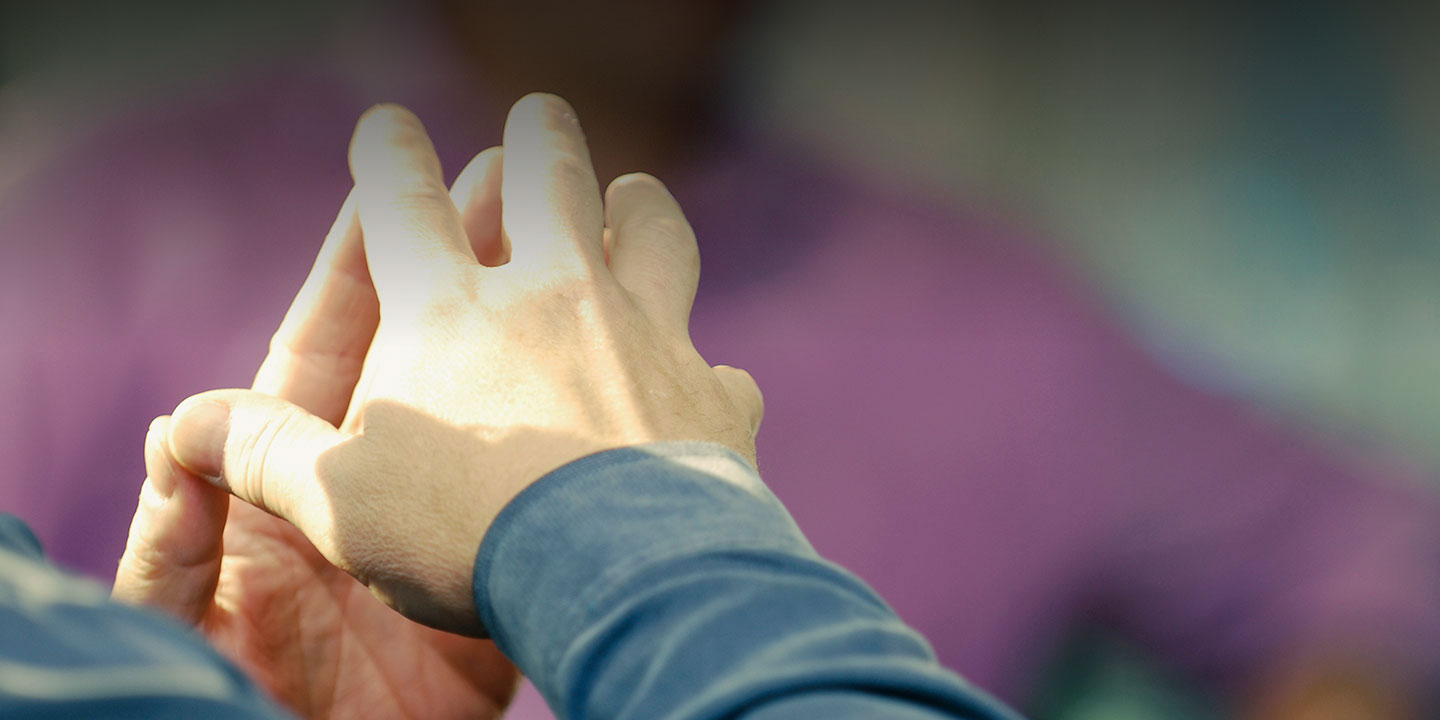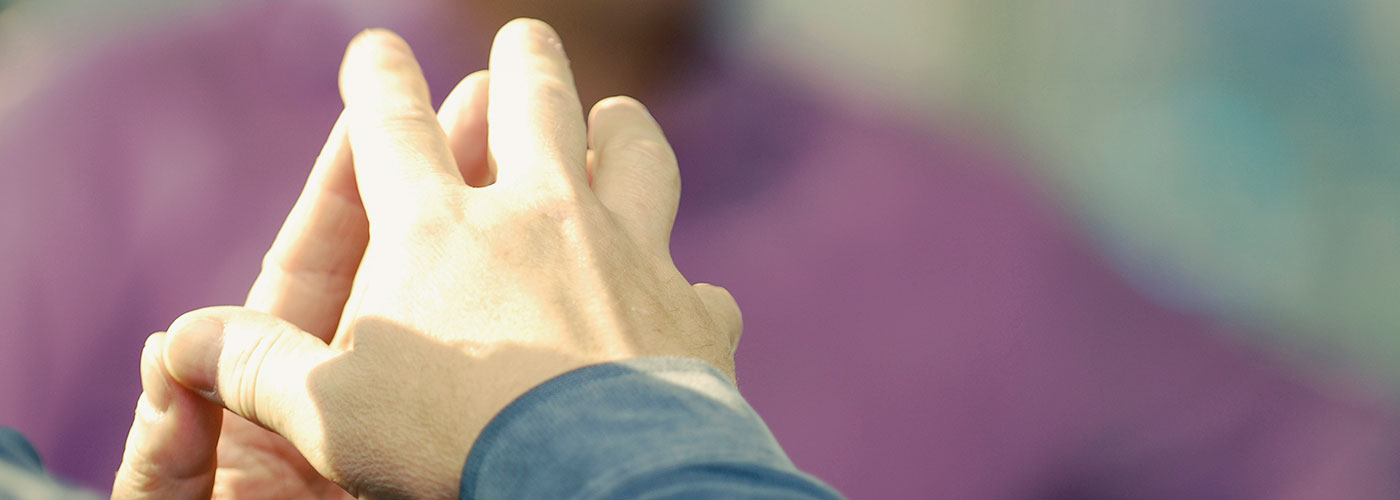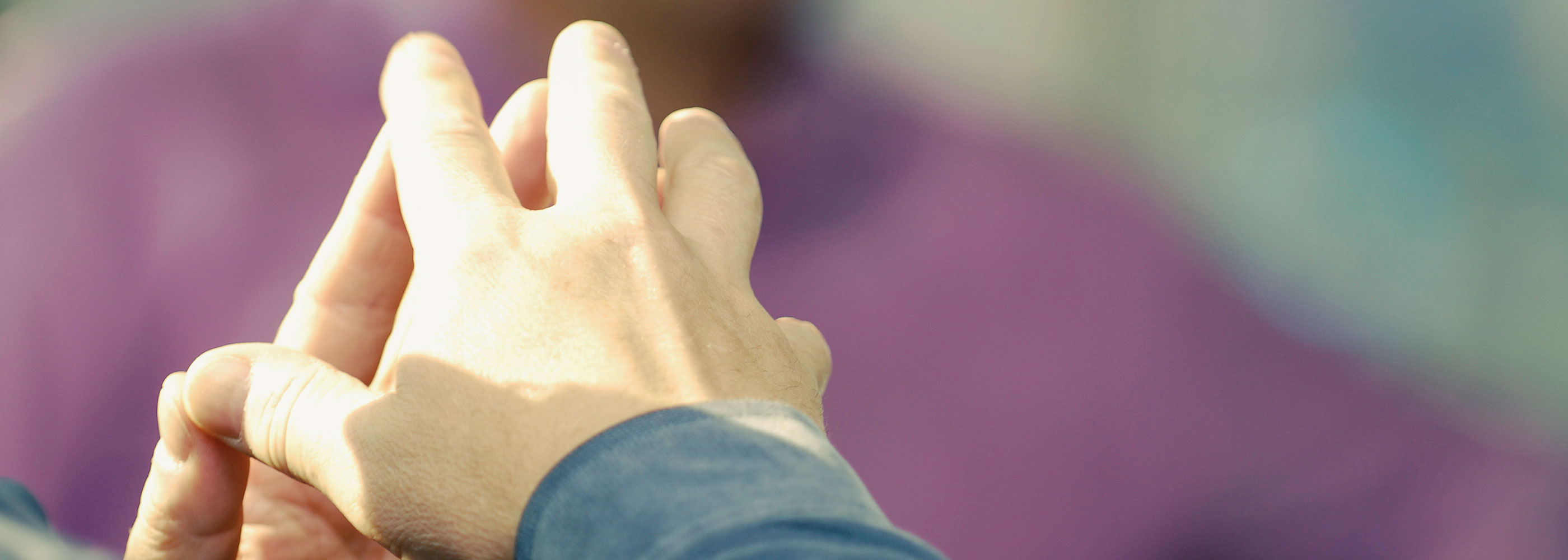
Main content
The price of freedom
Aron, who comes from Eritrea, would love to work as a carpenter after he has finished his German and integration courses. He speaks to his wife and two children on the telephone once a month. They currently live in a refugee camp in Sudan.
The interview was conducted in 2016.
Aron (aged 27 and whose name has been changed) is from Eritrea and has been living in the administrative district of Rosenheim for 14 months. Most male refugees flee Eritrea to escape physical abuse. Aron was also a soldier for ten years. If he had quit the army it is highly probable that he would have been sent to a labour camp.
Fleeing his homeland cost him 3,700 US dollars
Aron made the choice to live in freedom. After fleeing his home country, the journey to Bavaria through Sudan and Libya took the 27-year-old five months. It was a long, dangerous and expensive journey. He explains how it cost 1,700 US dollars just to travel across the Sahara. Traffickers then took 2,000 US dollars from him to cross the Mediterranean Sea. “The boat was totally overcrowded. Water was coming over the sides,” Aron says. They were rescued by the coastguards.
“The Catholic church in the town is beautiful. As soon as I can understand German better, I want to go and listen to mass on Sundays.”
Help dealing with the local authorities
His whole family has contributed to his escape. Aron hopes that he will be able to find work quickly to pay them back the 3,700 dollars. He would like to work as a carpenter most of all. That was his profession in Eritrea before he joined the military. But before Aron can start work, he must first learn German. He has been attending German and integration courses for four months. “I am also learning some things about German rules and laws on the courses”, he says. While he is talking he now only rarely switches back to English. He also practises with Susanne and Beate (their names have been changed), who are two volunteers. The two women are also helping him with his dealings with the local authorities.
His wife and children are in a refugee camp in Sudan
Aron finds that the people in Bavaria are very willing to help, even if he had to initially get used to the fact that they often have very serious faces and not everyone says hello to everyone they see on the street. Nevertheless, he thinks it is wonderful to live in Bavaria. The churches have particularly impressed him. “The Catholic church in the town is beautiful. As soon as I can understand German better, I want to go and listen to mass on Sundays,” says the orthodox Christian. Aron believes that “politeness and hard work” are especially important values in Bavaria. He wants to maintain these values. And what is the best thing about Bavaria for him? “The people have work and lead good lives. Children are able to go to school and then in the afternoon play in the playground or go swimming.” As a father of a four-year-old son and one-year-old daughter, that is what he wishes for his own children. They currently live with their mother in a refugee camp in Sudan and are waiting to join their father. They speak with each other on the telephone once a month. Does Aron miss them very much? “Yes. Always.”



